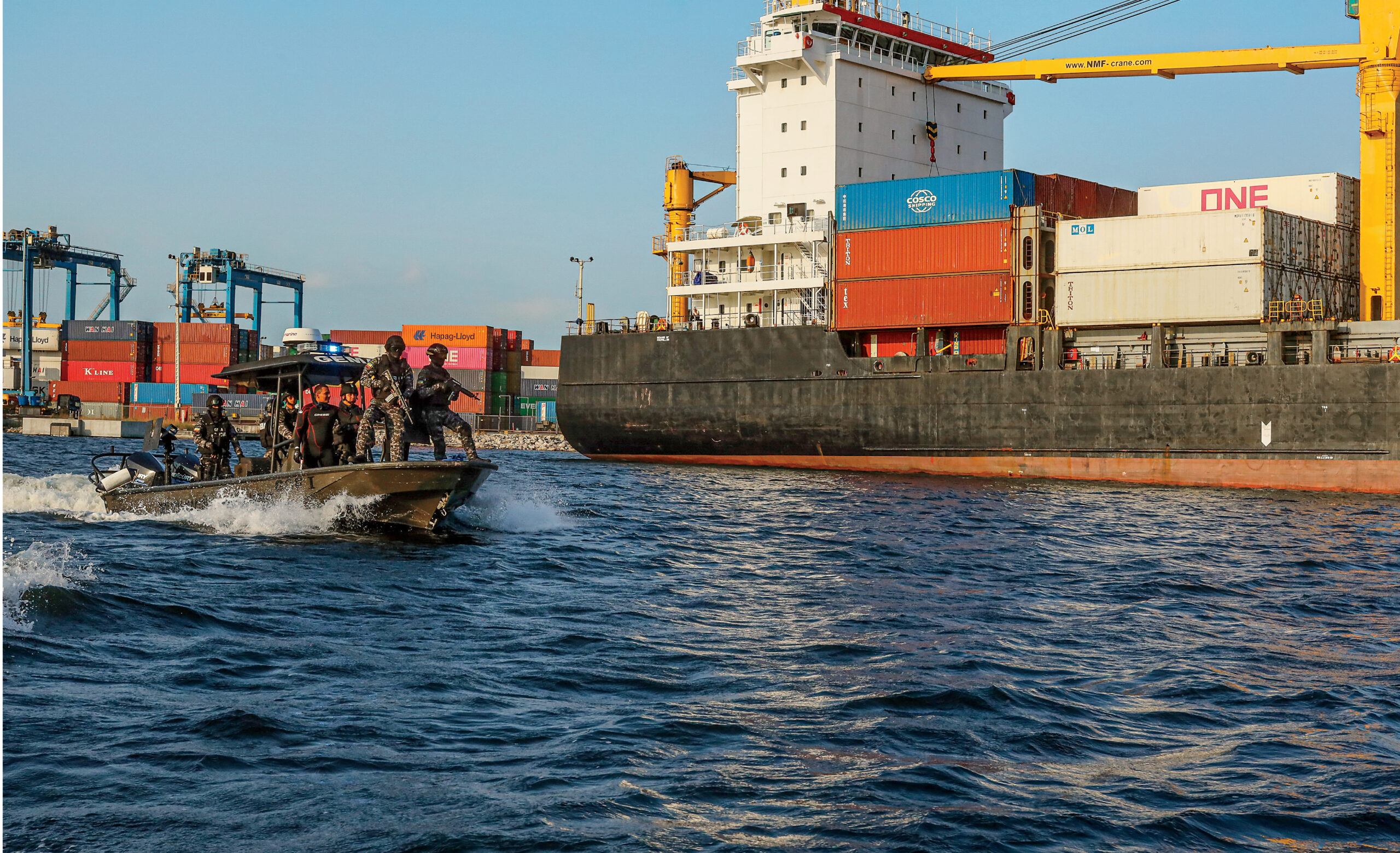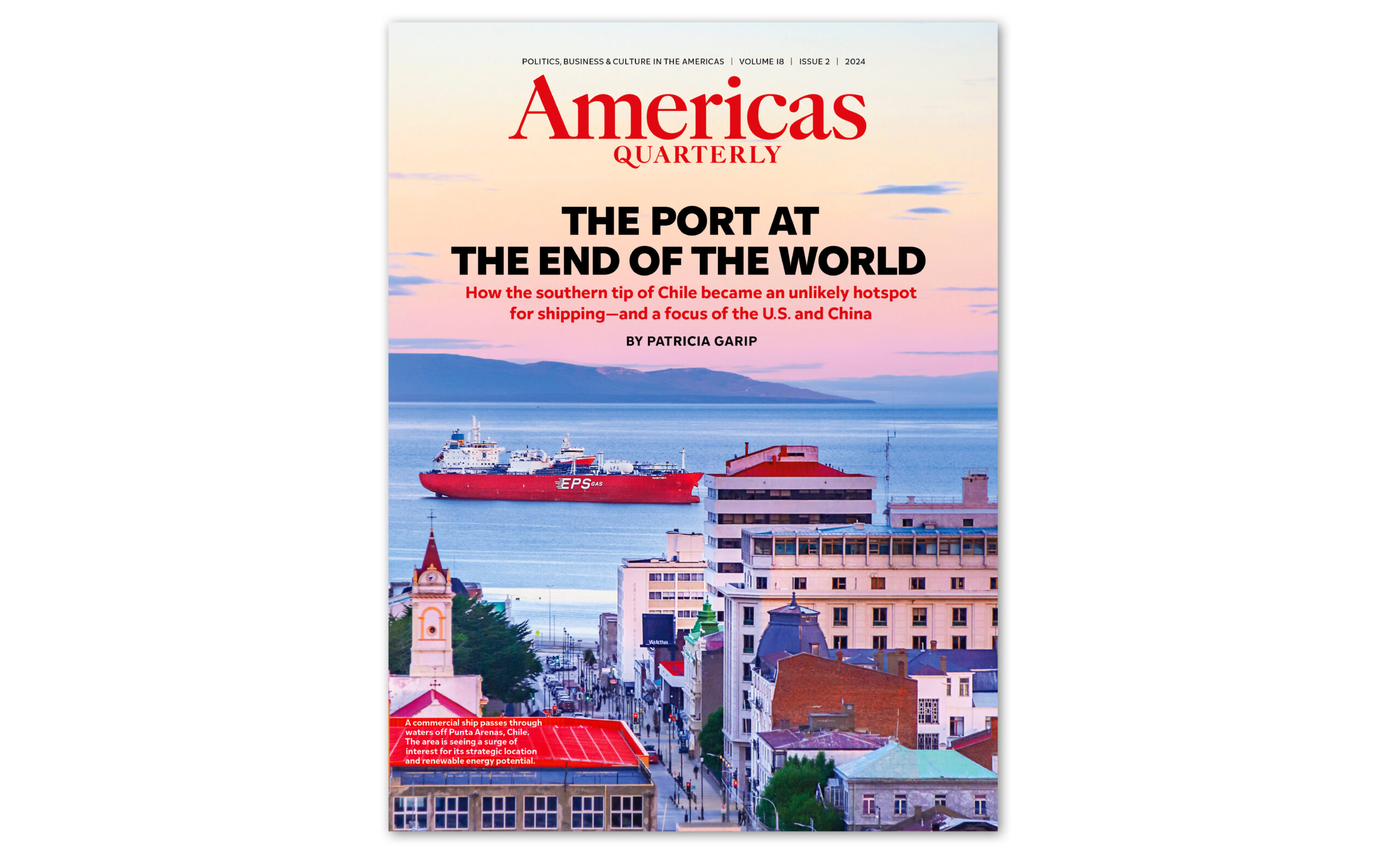Is the FTAA Enough to Ensure Economic Growth in the Americas?
Is the FTAA Enough to Ensure Economic Growth in the Americas?
All eyes were on Miami last November when government and business leaders from throughout the hemisphere assembled to determine the future of a Free Trade Area of the Americas (FTAA). In speech after speech and countless opinion articles leading up to the free trade ministerial, proponents of the FTAA asserted that it would improve economic growth and reduce inequities long afflicting Latin American and the Caribbean economies. As a senior vice president of a company with extensive and long-standing investment in the region, I joined in this chorus and continue to do so.
A strong, meaningful FTAA would be critical in ensuring growth, reducing poverty, and increasing market access on mutually beneficial terms. Recent bilateral free trade agreements, for example, have created new commercial incentives on the basis of comparative advantage by removing trade-distorting and non-tariff barriers.
In Jordan, which signed a free trade agreement (FTA) with the U.S. in 2000, trade flows continue to grow at double digit rates during a regional recession and worldwide slowdown, attracting investment from companies in the pharmaceutical industry. Mexico, the largest Latin American market for the U.S. pharmaceutical industry, has experienced increased investment and job growth as a direct benefit of the North American Free Trade Agreement (NAFTA).
Free trade is very important and the FTAA is an historic opportunity that the private and public sectors must make happen. However, a strong FTAA alone will not transform Nicaragua, Peru, Paraguay or Jamaica into economic growth engines overnight. Nor will it alone bring electricity and clean water to impoverished villages in northern Brazil or rural Bolivia. Economic growth is a complex, multifaceted process affected by many factors. It does not automatically happen with the signing of one accord; it must be nurtured, encouraged, and allowed to flourish.
One thing that I have learned in over 25-years of working in the pharmaceutical industry is that countries that experience economic growth are those that have created environments conducive to attracting investment, and that the growth of innovative industries helps to bring high-paying, high-skilled jobs.
While there is no one recipe for creating the “right” environment, in general, countries that have succeeded seem to be those that support:
Free trade. Increasing trade and reducing unfair protective trade barriers will lead to stronger economies and societies. The FTAA is the best vehicle for promoting free trade and regional integration in the hemisphere.
Intellectual Property Protection (IPP). Knowledge-based industries, such as pharmaceuticals, need incentives to undertake the high-risk, expensive, and time-consuming process of discovering and developing breakthrough products. An FTAA should include protection for IP rights, reinforcing the protection of property rights in conformity with the Agreement on Trade-Related Aspects of Intellectual Property Rights.
Ethics and the rule of law. Corruption in the public and private sectors impedes economic and social development of countries and is a disincentive to both innovation and investment. It is imperative that countries enforce international conventions such as the Inter-American Convention Against Corruption to curb bribery by international companies, and that private businesses fulfill their obligations under the OECD Anti-Bribery Convention. It is in the interests of less developed countries to introduce transparency measures in public procurement because the waste of their own scarce resources is at stake. If corruption in procurement is not contained, poverty will grow.
Efficient and transparent regulatory environment. Businesses engaged in all industries must feel confident that their interactions with regulatory agencies will be timely, transparent and well defined. Singapore is an example of a country that has reduced the regulatory red tape of doing business and as a result has welcomed more and more companies to its shores. The process of obtaining tax exemption status in Singapore takes weeks, not years, as it does in some countries in our hemisphere.
Economic reform based on free market principles that embrace competition and choice. The best way to ensure access to goods and services is through a market-oriented approach. Countries that remove barriers such as price controls, onerous taxes, and burdensome regulations increase investment.
Innovation. Innovation is the capacity to translate knowledge into high-value, unique products and services. Countries that create environments attractive to innovative industries are likely to see their economies grow. Mexico is one example. It is trying to get away from the “maquiladoras” and its image of being a assembler of exports by trying to spur local technology development and innovation.
These conditions help to create environments in which domestic innovation can flourish and foreign investment will increase . Economic growth is what leads to improved standards of living, stable societies, and thriving democratic institutions.
As we look past Miami, it is clear that a strong FTAA will be a vital step toward economic growth. But let us not hinge all of our hopes for a better future for the people of the Americas on any one opportunity. Rather, let us keep working together to create the right environment for long-term, sustainable growth, and prosperity. A strong FTAA is a necessary, but not sufficient, step in that direction.
*Grey F. Warner is senior vice president for Latin America at the research-based pharmaceutical company Merck & Co., Inc., which operates as Merck Sharp & Dohme outside of the U.S. He is a member of the Council of the America’s Board of Directors.







